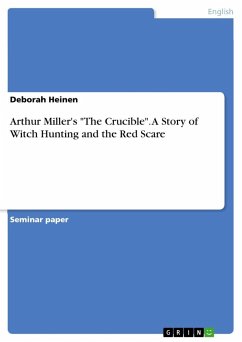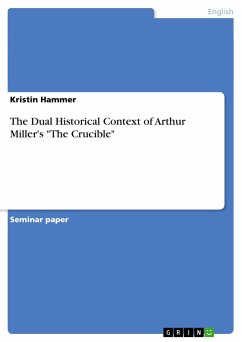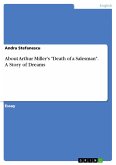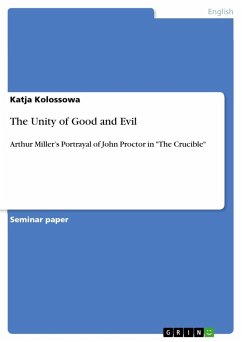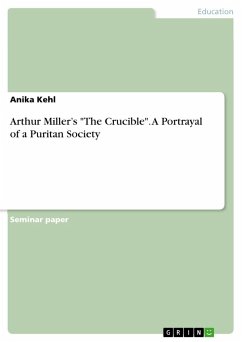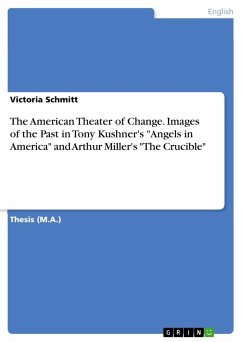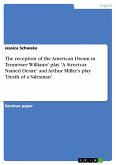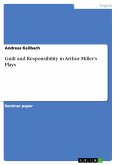Seminar paper from the year 2016 in the subject English Language and Literature Studies - Literature, grade: 1.7, University of Bonn (Institut für Anglistik, Amerikanistik und Keltologie), course: American Drama, language: English, abstract: The Salem witch hunt and the McCarthy era - they are definitely two of the rather unpleasant chapters of American history to think of. Even though there are more than 250 years of distance between these two periods, there are still several parallels to be perceived. One might say: History repeats itself! One of the attempts to combine the events of 1692 and the 1950s, and point out their similarities, was made by America's famous playwright Arthur Miller. "The Crucible" was written in 1953 and is set in 1692 Salem. The play would become by far Arthur Miller's most frequently performed play. In the context of McCarthyism, the audiences soon interpreted the play as a veiled attack on the current chase after Communists in the country. However, Arthur Miller time and again denied such an intention, but it appears conceivable that the play was shaped, in a way, by Miller's experiences during McCarthyism. The work in hands is supposed to find out, whether "The Crucible" can be referred to as a play with a dual historical context. In the first chapter of the work, the apparent historical background, the Salem witch trials of 1692, will be outlined briefly. Following this, the play's formation context, America's 1950s and McCarthyism, will be thematized. As Arthur Miller experienced the consequences of the 20th century witch hunt himself, chapter four deals with his experiences with McCarthyism and how it might have affected him writing the play. The next chapter, then, analyzes "The Crucible" in more detail and points out passages that can be related to the events of the 1950s and potentially contain hidden criticism. Finally, in chapter six there will be an attempt to give an answer to the question, whether "The Crucible" can be considered a play with a dual historical context or not.As many of the documents of the Salem witch trials still exist, the course of events can easily be reconstructed. With regard to the events of the 1950s, documents are mainly retained by the FBI, but, however, a few surveys of accused people could be reconstructed either by reports of the accused or by tapes and documents that were somehow not kept under wraps by the FBI. As Arthur Miller is one of America's most famous playwrights, his plays evoked the interest of many scholars over the last decades.

